The Society of Professional Journalists has a new Ethical Code. But like most codes it is loaded with lofty principles but shoots blanks -- there is no enforcement mechanism.
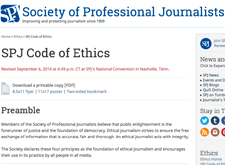 Ethics chair Andrew Seaman works about four blocks from us at Reuters on Times Square and we would like to see him implement one particular part of the Code—that journalists “update and correct” a story throughout its life.
Ethics chair Andrew Seaman works about four blocks from us at Reuters on Times Square and we would like to see him implement one particular part of the Code—that journalists “update and correct” a story throughout its life.
Seaman, a 2011 grad of the Columbia University J School who specializes in medical journalism, should be especially interested in the failure of major media such as the New York Times and Washington Post to revisit their claims that Johnson & Johnson’s handling of the 1982 Tylenol murders was the “gold standard of crisis management.”
SPJ’s Code, like that of PR Society of America, is not enforced. But there’s nothing to stop Seaman from studying evidence that the poisoning of Tylenol capsules took place while they were still in the distribution chain of J&J and doing some jawboning.
Such evidence has been compiled by former J&J employee Scott Bartz and put in books of varying length including the 200-page TYMURS: The 1982 Tylenol Murders.
Actually, no evidence is needed to make a judgment about J&J’s behavior. It should never have sold OTC drugs in easily doctored capsules and especially not after seven people died after being poisoned that way.
Reuters, should it take up this story and pursue the angles mentioned above, would be the first major media to do so.
NYT, Washington Post, The Economist, Christian Science Monitor, Fortune and many others have swallowed the J&J line that the company acted purely from humanitarian motives.
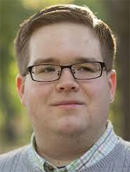 Seaman |
Perhaps we could interest Seaman in visiting the nearby O’Dwyer offices and seeing the box full of research we have compiled on this subject in the past 32 years. We would hop over to his office if he will let us.
SPJ, Other J Groups Are in Weakened State
SPJ, Investigative Reporters & Editors and some other J groups are in a weakened state these days reflecting the economic plight of newspapers and other media. J jobs now total 43,630 while there are 205,530 PR specialists (U.S. Dept. of Labor), a 4.6/1 ratio.
We have a bone to pick with SPJ which refused to correct false statements about it that appeared on the website of the PR Society. VP-PR Art Yann claimed that the SPJ asked us to resign our membership when it did no such thing. This statement by Yann appeared Oct. 19, 2011 on the Society’s website:
We have provided Mr. O'Dwyer with a 23-page document that outlines our concerns with his professional conduct. His conduct also prompted the Society of Professional Journalists (SPJ) to invite Mr. O’Dwyer to resign his membership in that organization. And in its own statement, the National Press Club could not help but concede that many of Mr. O'Dwyer's actions are "unfortunate" and "even highly disagreeable." It strikes us as ironic that the National Press Club would question PRSA's actions, while at the same time excusing Mr. O'Dwyer's.
SPJ said it would not get involved in the “feud” between the Society and us. It made no judgment as to the validity of any charges against us. Ditto for the NPC.
Attempts to get SPJ staff or officers to make a correction went nowhere. Perhaps now that SPJ is showing so much concern about ethics, it will revisit this situation.
It should join NPC in urging the PR Society to stop boycotting the O’Dwyer Co. Current policy of PRSA is to refuse to all an exhibit of the six O’Dwyer products at the national conference in D.C. Oct. 11-14 and to deny any O’Dwyer reporters “credentials.”
IRE Shows Signs of Weakness
Investigative Reporters & Editors, a group with more than 4,000 members including 700 in the New York area, should also protest the PRSA boycott.
IRE meetings in New York take place in bars and lack the rudiments of organization. NYT reporter Sarah Cohen, who ran one of the meetings, says there is no such thing as a New York chapter of IRE although there should be.
A meeting of IRE/NY members May 22, 2014 was held at the Beer Authority on Eighth ave. and 42nd st. where the noise level at the bar, where the members congregated, was so loud that ordinary conversation was impossible.
A customer commenting on the bar’s website said “bring ear plugs” if you go there, an experience she would not repeat.
Name badges were not provided at the meeting nor was anyone allowed to address it. There was no list of attendees. Journalists appear to be frightened of giving out contact information.
A similar disorganized meeting of IRE members was held Sept. 10, 2013 on the fourth floor terrace of Yotel New York at 42nd st. and Tenth ave.
Cohen, who was in charge of the meeting, would not let anyone address the group, saying it was a “social event only.” We asked when there would be a “serious meeting” and she answered, “Never.”
IRE is based at the University of Missouri J School.


 Trump Media & Technology Group today reported a $58.2M net loss on $4.1M in 2023 revenues, a disclosure that drove its stock price down 22.6 percent to $47.96.
Trump Media & Technology Group today reported a $58.2M net loss on $4.1M in 2023 revenues, a disclosure that drove its stock price down 22.6 percent to $47.96.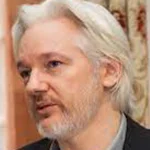 Barry Pollack, an attorney at Wall Street’s Harris St. Laurent & Wechsler, has registered Julian Assange as a client with the Justice Dept. “out of an abundance of caution.”
Barry Pollack, an attorney at Wall Street’s Harris St. Laurent & Wechsler, has registered Julian Assange as a client with the Justice Dept. “out of an abundance of caution.”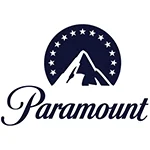 Paramount Global to slash 800 jobs in what chief executive Bob Bakish calls part of an effort to “return the company to earnings growth"... Rolling Stone editor-in-chief Noah Shachtman is exiting at the end of the month due to disagreements with chief executive Gus Wenner over the direction the magazine is taking... The New York Times broke the $1 billion barrier in annual revenue from digital subscriptions in 2023... Press Forward is investing more than $500 million to strengthen local newsrooms.
Paramount Global to slash 800 jobs in what chief executive Bob Bakish calls part of an effort to “return the company to earnings growth"... Rolling Stone editor-in-chief Noah Shachtman is exiting at the end of the month due to disagreements with chief executive Gus Wenner over the direction the magazine is taking... The New York Times broke the $1 billion barrier in annual revenue from digital subscriptions in 2023... Press Forward is investing more than $500 million to strengthen local newsrooms. The majority of news articles are read within the first three days of publication, according to a recent report.
The majority of news articles are read within the first three days of publication, according to a recent report.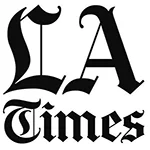 The Los Angeles Times gives pink slips to 115 people or 20 percent of its newsroom staff... TIME is also laying off about 30 employees, which is approximately 15 percent of its editorial staff... The Baltimore Banner, which was launched by Stewart Bainum in 2022 after he failed to buy the Baltimore Sun, added 500 subscribers per day in the three days following Sinclair Broadcast Group's deal to purchase the Sun.
The Los Angeles Times gives pink slips to 115 people or 20 percent of its newsroom staff... TIME is also laying off about 30 employees, which is approximately 15 percent of its editorial staff... The Baltimore Banner, which was launched by Stewart Bainum in 2022 after he failed to buy the Baltimore Sun, added 500 subscribers per day in the three days following Sinclair Broadcast Group's deal to purchase the Sun.


 Have a comment? Send it to
Have a comment? Send it to 
No comments have been submitted for this story yet.